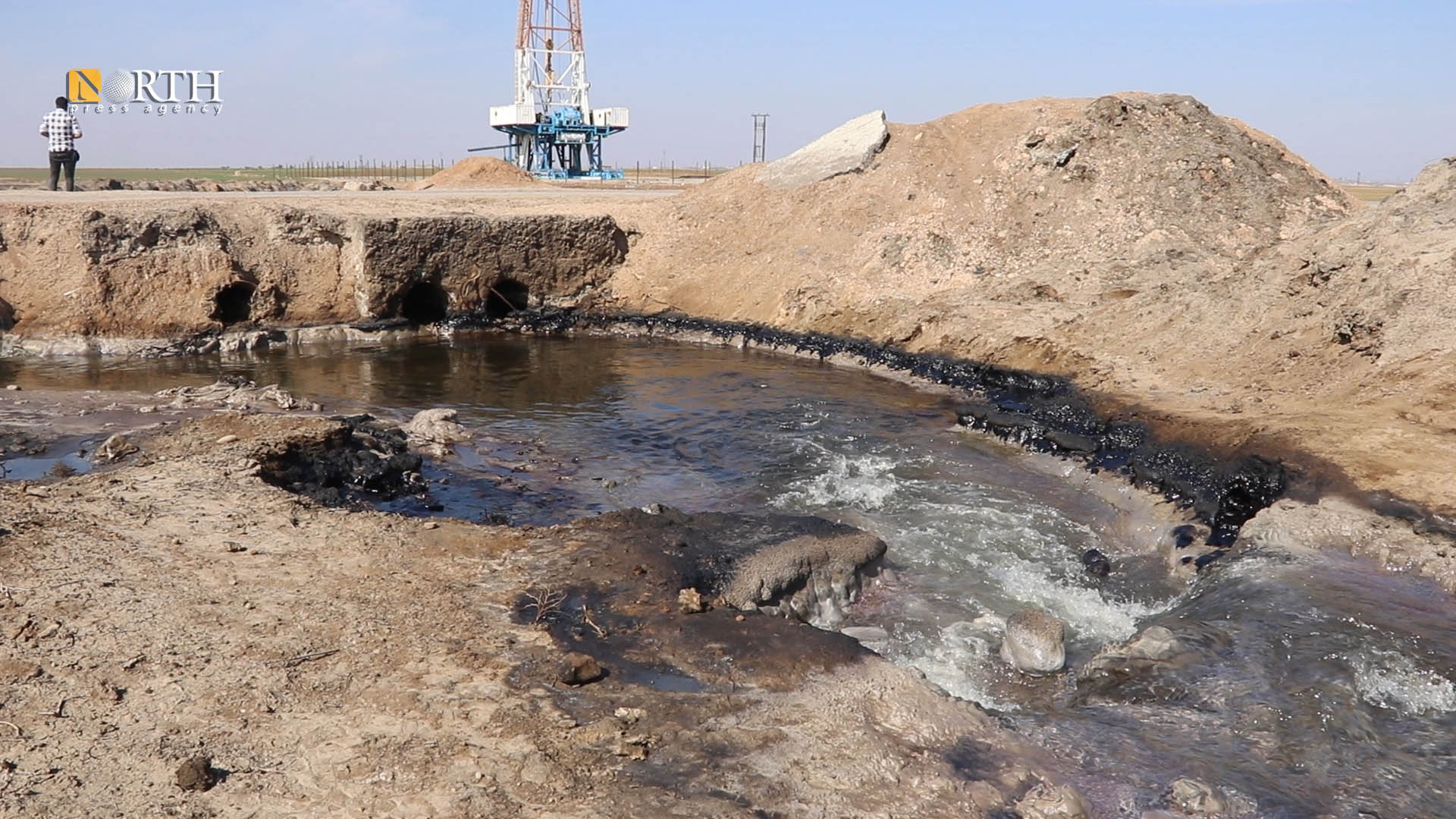DERIK, Syria (North Press) – Abdurrahman Othman, from the village of Tel Mashhen in the countryside of Tel Kocker (al- Yarubiyah), in northeast Syria, can’t irrigate his land through a well, because it is supplied by Wadi al-Amlah river which is polluted with oil derivatives.
All the wells located to the east and west of the valley have been polluted, due to the leakage of oil materials into them, after the increase of oil derivatives in the river in 2016, according to residents.
Previously, the residents used to grow cotton and wheat, depending on well water for irrigation, according to what Othman told North Press.
The man points out that he irrigated about 25 acres, but the pollution of the well’s water pushed him to stop.
The People’s Municipality in Tel-Kocher is communicating with Rmelan Oil Fields Directorate to limit this process.
bad smell
Abdulwahed Muhammad Sobeih, a resident of al-Sabihiya, one of the affected villages, said that the river overflows due to heavy rainfall, which causes damage to our farmland.
Water enters the residents’ homes whenever the river overflows, and due to the odors emanating from the water, the number of people suffering from chest diseases increased, and many infant children lost their lives, according to Sobeih.
He points out that the people who live near the valley cannot sleep because of the smell of oil derivatives that increases when the wind blows.
While the pulmonologist, Sa’ad Ezzadin Hesso , believes that the enormous impact of petroleum products on humans and other living things have clearly increased over the past ten years.
The cases and symptoms of people with allergic respiratory diseases such as asthma, pulmonary fibrosis and others have increased, in addition to lung cancer cases, he said.
The pollution of the river harms pregnant women, which is the reason for the increase in abortions, and the presence of cases of malformation, according to women from the affected villages.
The doctor believes that the reason is due to the use of the primitive oil refineries in the region.
Affected farmland
Hesso said that the solution lies in installing refineries to recycle and treat oil in correct ways and on scientific grounds that mitigate the effects of pollution.
The river affects summer crops such as cotton, watermelons and vegetables, and causes the spread of insects and flies, as it appears that oil deposits gather on its sides and its dark color, which highlights the water pollution.
In turn, Nidal Kahil, co-chair of the Agriculture and Livestock Committee in Tel-Kocher points out that the river has damaged farmland in more than 30 villages.
The river originates from Tel-Adas oil station near the vicinity of the Rmelan fields, and flows into one of the Khabur branches, covering a distance of approximately 60 km, according to a video report by North Press.
Due to the lack of rain in the past years, the co-chair said that the river has not flowed for two years, this reduced the damage to land.
The equivalent of more than 300 hectares of farmers’ land were damaged, according to their complaints.
The residents are calling the concerned authorities to find a solution to this problem, which has been going on for many years.
Completely in vain
From time to time, crude oil tanks pass from the Tel-Adas station to primitive oil refineries in the vicinity of the neighboring villages, in which the crude oil is converted into gasoline, kerosene and diesel, according to informed sources.
While, Khalis al-Othman, from the village of Tel-Mashhen, said that he is unable to harvest the crop, because it was polluted with oil materials, even the seeds become valid.
The shepherds depend on water from tanks, which are often not available, to clean their cattle, which turned black, as many of them die after drinking from the river’s water, something the herders complain about.
Residents submitted a number of complaints to solve this problem, but to all in vain, according to al-Othman.

